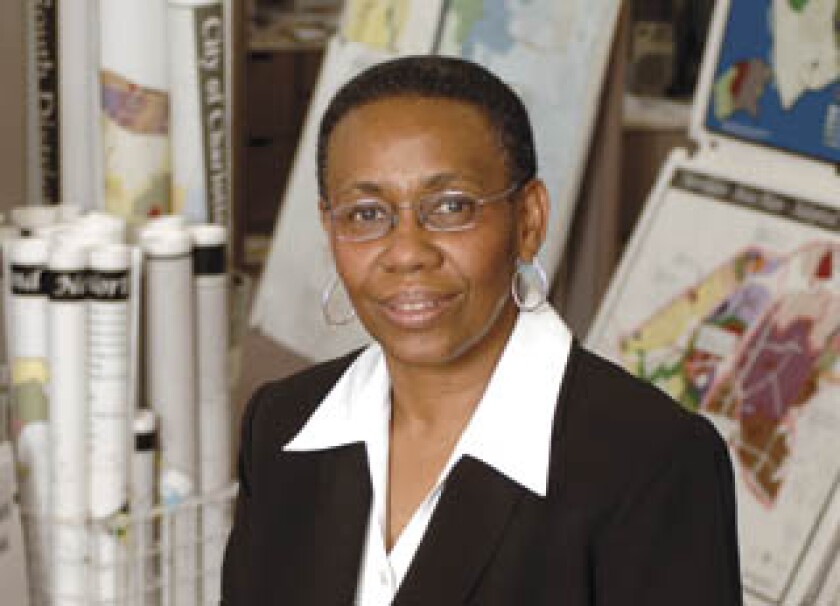
Nancy Pierce
Born and raised in Chattanooga, Campbell worked briefly for the Tennessee state planning office before returning to her hometown in 1988 to focus on growth policies there. "Then the real planning itch got into me," she says. "I had read lots of newspaper articles about Charlotte and what they were doing with neighborhood organizations there. Charlotte has a unique approach to planning. There's a respect for the unique identification of smaller geographies."
As a senior planner, Campbell set to work cataloging the city's neighborhoods and looking for ways to improve them. She helped develop and manage Charlotte's City Within a City program, a revitalization effort for residential areas and distressed business communities within a 60-square-mile urban core. Campbell also created a system for the planning commission to rate the neighborhoods most in need of help. The city then allocated its resources and attention based on those ratings. She played a major role in crafting most of the policy documents that provided a framework for the city and county's future growth, including large-scale land-use plans and smart-growth strategies.
"Debra set up a planning process that's very collaborative," says Pam Syfert, who recently retired as the city manager of Charlotte. "She has a real passion for the city and its neighborhoods." Four years ago, when the planning director retired, Charlotte conducted a national search to replace him. But officials soon decided that the best candidate was already there. In May 2004, Campbell became the city's planning director.
Since taking the helm, Campbell has focused mostly on transit planning, helping manage the development of the city's new light-rail system. The rail lines, stations and surrounding transit-oriented development comprise a $5 billion project, the largest single infrastructure endeavor in Charlotte's history. But Campbell still sees it in terms of neighborhoods. For her, transit isn't about getting people to work on time. It's about using transportation patterns to shape the city's growth. "Transit is a means; it's not the end," Campbell says. "The end is high-quality development and a way for us to promote better development to make sure we're better stewards of our community and the environment."
It's not always easy. Like those in many growing Sun Belt cities, Charlotte's suburbs have sprawled farther and farther into the North Carolina countryside. Campbell often has to combat the deep-seated notion that the best thing Charlotte could do to accommodate new growth is to keep building more roads. This fall, mass-transit opponents mounted a high-profile campaign to repeal the half-cent sales tax that has funded Charlotte's light-rail project. Arguing that the money could be better spent on new highways, opponents of the tax gathered enough signatures to put the tax repeal on the November ballot. Campbell's work is cut out for her. "We're trying for a redirection of growth," she says. "It's about taming this approach that we have had for decades."
In large part, though, Campbell has won people over to the idea that Charlotte should be guided by broader smart-growth policies. "She's able to articulate a vision for the community and help people understand where we're going," says Syfert. "She doesn't lecture. She just lays out the facts. But she does it in a way that makes people listen." While Campbell has been adamant on enforcing the city's planning policies, she's largely remained a behind-the-scenes player. A year and a half into her tenure as planning director, the Charlotte Observer called her "the most powerful person in local government you've never heard of."
— Zach Patton
Photo by Nancy Pierce









